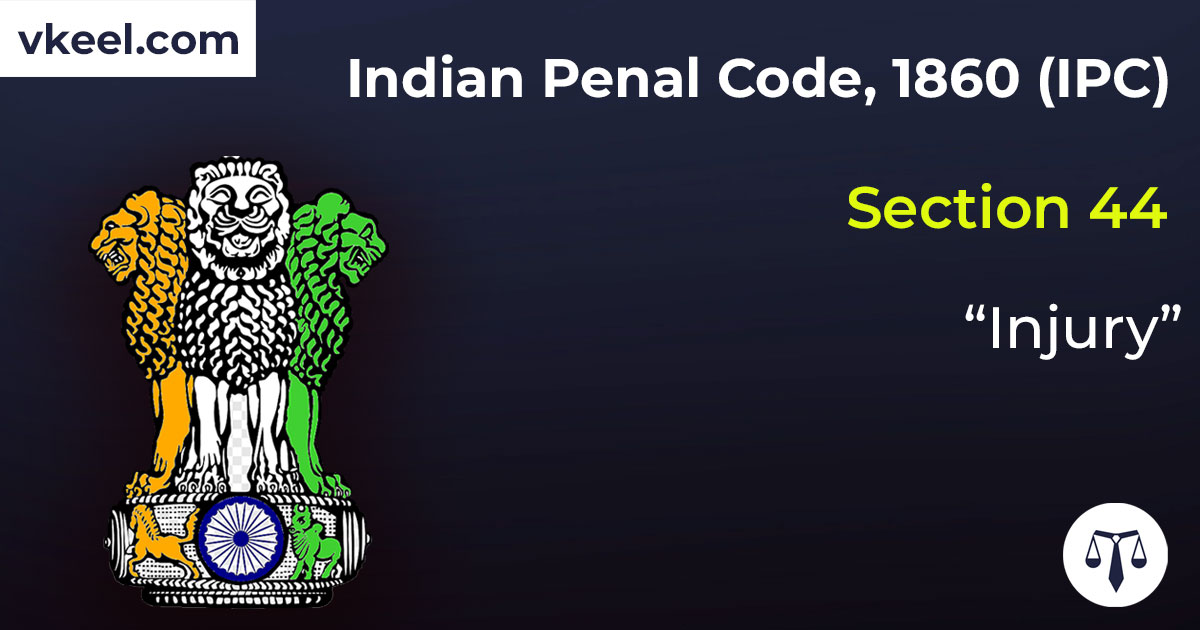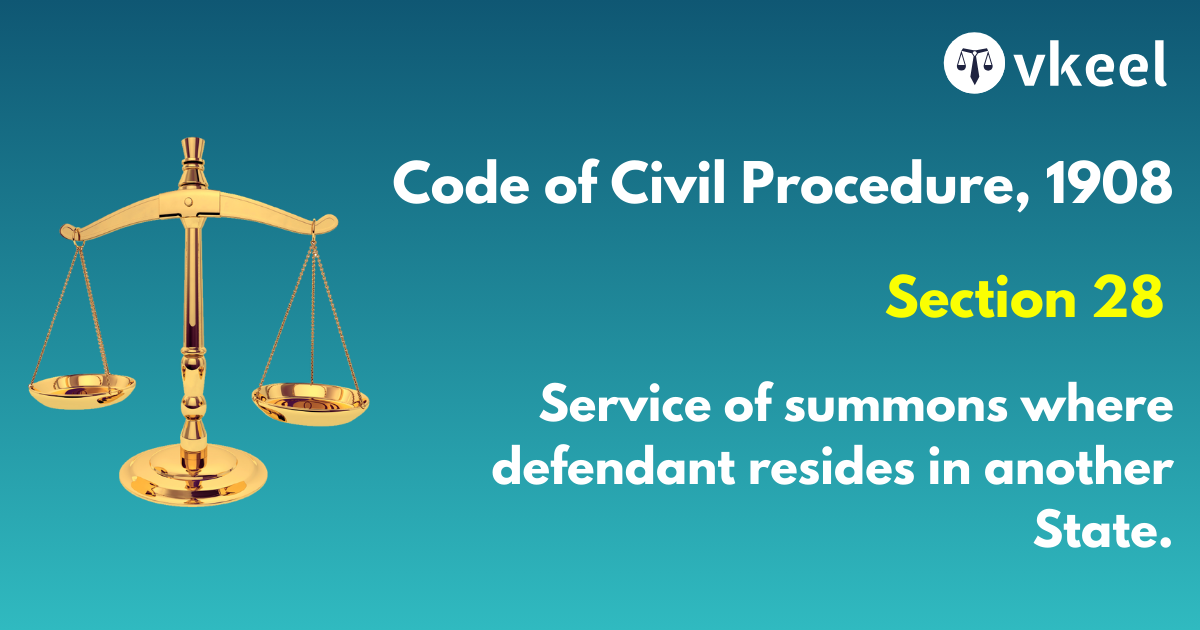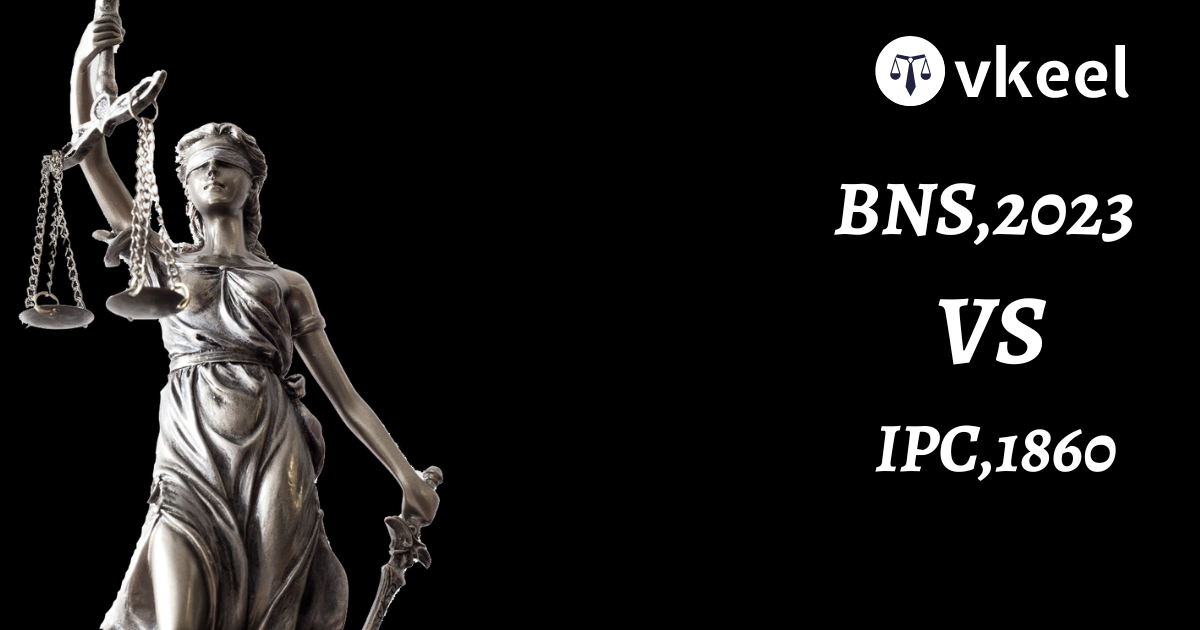Section 44 Indian Penal Code 1860 (IPC) – “Injury”
By Vkeel Team
Table of Contents
Description
“Section 44 Indian Penal Code 1860 (IPC)”
The word “injury” denotes any harm whatever illegally caused to any person, in body, mind, reputation or property.
Overview of Section 44 IPC
Section 44 IPC is titled “Injury” and falls under Chapter XVI of the IPC, which deals with offenses affecting the human body. It begins by stating that “Every act which causes injury to any person, by doing any harm to any person, or by any means good, or by any means evil, and is therefore an offense against the human body, shall be an offense against the person by whom it is done.”
Classification of Injuries
Section 44 further elaborates on the various types of injuries and classifies them as follows:
- Simple Injury:
Simple injuries are those that cause harm but do not endanger life or cause severe bodily damage. These include acts such as slapping, pushing, or minor physical altercations that result in bruises, scratches, or temporary pain. - Grievous Injury:
Grievous injuries, as defined in Section 320 IPC, are more severe and potentially life-threatening. This includes acts that cause fractures, dislocations, or injuries that may result in the impairment of bodily functions or permanent disfigurement. - Dangerous Injury:
Dangerous injuries, defined in Section 320 IPC, refer to injuries that pose a substantial risk to life. They include acts that result in the victim suffering a severe injury or injuries that may likely cause death.
Legal Aspects and Punishment
Section 44 IPC lays down the general principle that causing injury to another person is an offense. The severity of the injury determines the corresponding punishment. The IPC, in subsequent sections, further specifies the punishment for various degrees of injury.
- Simple Injury:
According to Section 323 IPC, the offense of causing simple injury is punishable with imprisonment for a term of up to one year, or a fine, or both. This offense is considered a bailable and non-cognizable offense. - Grievous Injury:
Grievous injuries fall under Section 320 IPC and are categorized into different degrees based on their severity. The punishment for causing grievous hurt can range from imprisonment for up to seven years to imprisonment for life, along with a fine. This offense is considered a non-bailable and cognizable offense. - Dangerous Injury:
Section 326 IPC addresses the offense of causing dangerous hurt. It states that anyone who causes dangerous injury shall be punished with imprisonment for life, or imprisonment for a term that may extend to ten years, along with a fine. This offense is considered a non-bailable and cognizable offense.
Relevance in Contemporary Times
Section 44 IPC plays a crucial role in safeguarding the well-being and physical integrity of individuals. It ensures that acts causing harm to another person are deemed offenses and subject to legal consequences. In contemporary times, where violence and assault cases continue to be prevalent, the provision serves as a deterrent and promotes the protection of individuals from harm.
The evolving legal landscape has seen amendments and additions to the IPC to address new challenges and emerging forms of injury. For instance, with the rise in cybercrimes, offenses such as online harassment, cyberbullying, or causing injury through electronic means have been incorporated into the legal framework. These developments highlight the dynamic nature of Section 44 IPC and its ability to adapt to changing societal needs.
Conclusion
Section 44 of the Indian Penal Code 1860 serves as a cornerstone in the legal system, addressing offenses related to injury. By providing a comprehensive classification of injuries and specifying corresponding punishments, it acts as a deterrent against acts causing harm to individuals. In today’s context, where personal safety and bodily integrity remain paramount concerns, the provision continues to play a crucial role in upholding justice and protecting the rights of individuals. As society evolves, it is essential to continually revisit and update such provisions to address emerging challenges and ensure a fair and just legal framework.
Desctiption Source: indiacode
Disclaimer:
The information provided in the article is for general informational purposes only, and is not intended to constitute legal advice or to be relied upon as a substitute for legal advice. Furthermore, any information contained in the article is not guaranteed to be current, complete or accurate. If you require legal advice or representation, you should contact an attorney or law firm directly. We are not responsible for any damages resulting from any reliance on the content of this website.












